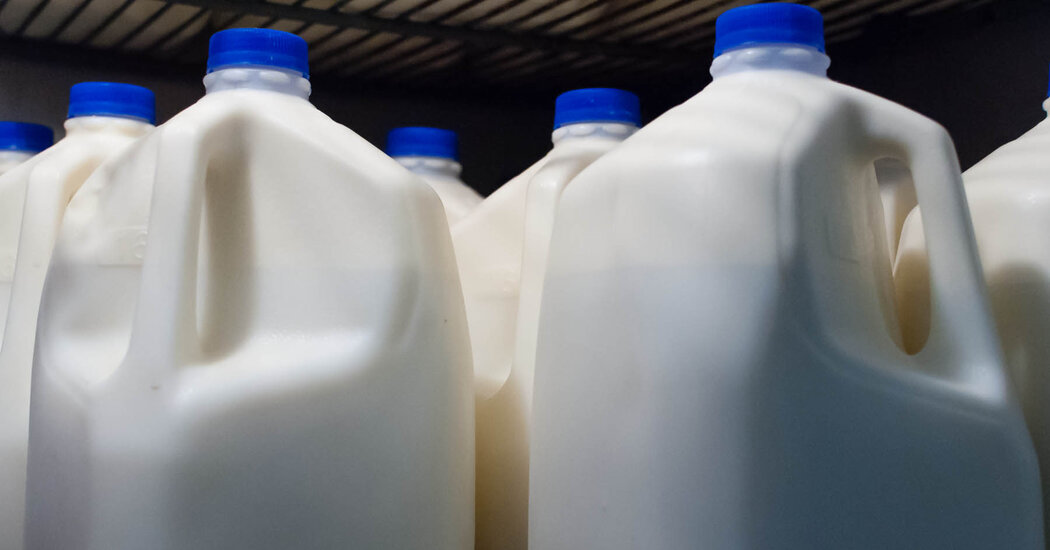Here’s what we know — and don’t know — about the risk the virus poses in food.
A strain of avian influenza that has killed millions of birds in recent years has now been detected in cows in several states, prompting concerns about the safety of the U.S. dairy supply.
Federal health and agriculture officials released a statement last week stressing that there “continues to be no concern” about the safety of the commercial milk supply, while underscoring that the agencies are continuing to monitor the situation as it evolves.
Scientists know that bird flu can spread to humans when they come into contact with infected animals, including dead ones, without wearing protective gear, which seems to have been the case with a person recently infected in Texas. So far, there isn’t any evidence to suggest that humans can contract bird flu by consuming food that has been pasteurized or cooked, said Benjamin Chapman, a professor and food safety specialist at North Carolina State University.
“That’s not to say it couldn’t happen,” he said. “It’s just that we have a pretty robust history of it not happening. And that’s good news.”
However, there are a few key points that researchers are still working to understand, Dr. Chapman and other experts said, like just how widespread the current outbreak is in cows, or exactly how the virus spread to cattle. Public safety agencies have said that it’s not clear what risks surround unpasteurized products.
“In the column of known versus unknown, there’s a lot more in the unknown part,” said Dr. Gail Hansen, a veterinary public health expert and independent public health consultant.
